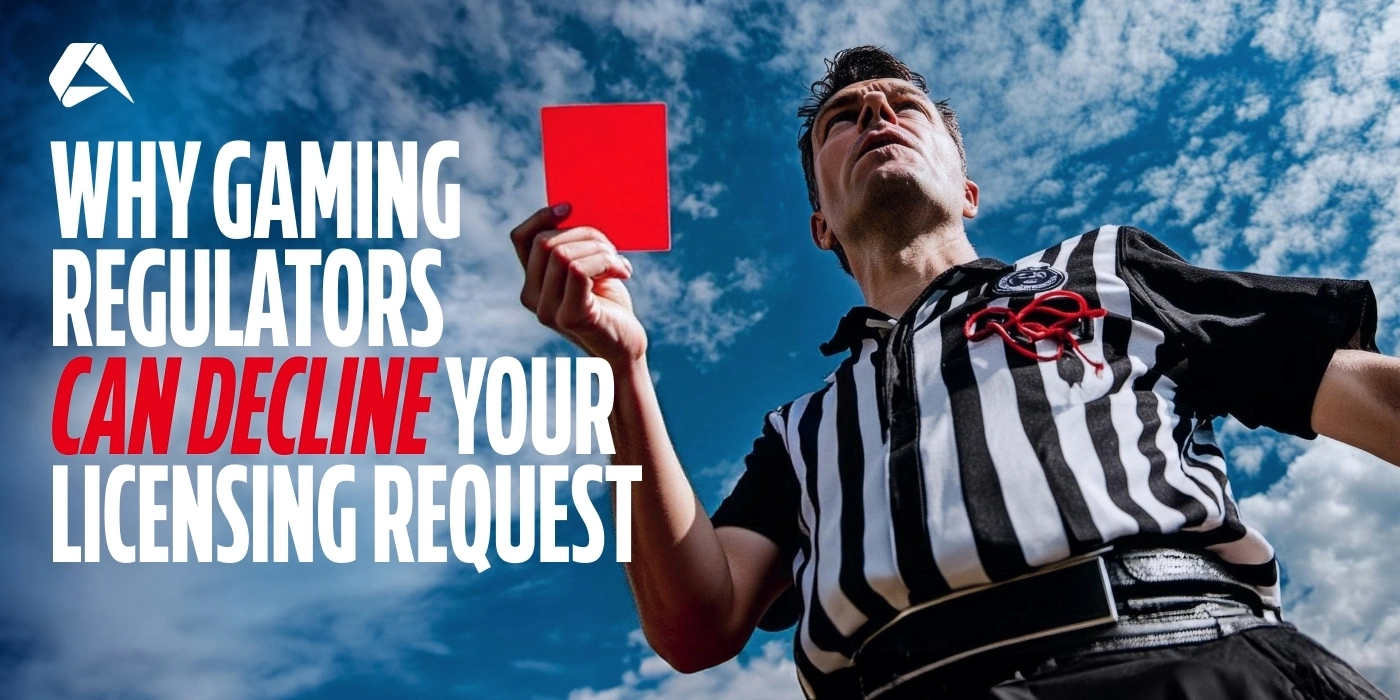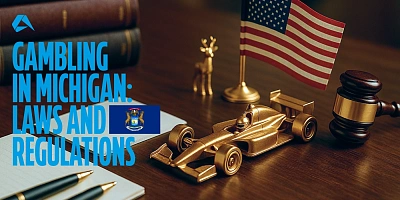If you’ve landed on this page, you likely already know that securing a gambling license isn’t a guaranteed process. In fact, an estimated 20% to 40% of first-time applicants face rejection, depending on the jurisdiction’s regulatory demands. Highly regulated markets impose stricter financial and operational compliance requirements, while newer markets may offer a more accessible path. However, regardless of the license being applied for, licensing isn’t about luck. It’s about preparation.
This article explains what regulators look for, why applications fail, and how to maximize your approval chances. Whether applying for the first time or refining your approach, this guide provides exclusive licensing insights that experienced operators wish they had known from the start.
Importance of Obtaining Regulatory Approval
In the iGaming industry, a gambling license isn’t just paperwork. It’s the difference between being a recognized industry player and operating in the shadows. Think of a gambling license as the industry’s stamp of approval. Without it, players, banks, and business partners will keep their distance. But regulators don’t hand out approvals lightly. Their job isn’t just about compliance. It’s about trust.
A regulator scrutinizes every aspect of an applicant’s business: financial stability, operational transparency, and the integrity of those at the helm. Why? Because the industry’s reputation hinges on keeping criminal elements out and protecting players from exploitation. A poorly regulated market invites fraud, match-fixing, and money laundering, which are risks that tarnish the sector for everyone.
For operators, the stakes are high. A rejected license application isn’t just a setback—it can shut doors permanently. That said, those who treat regulatory approval as a bureaucratic formality are in for a rude awakening.
The Benefits of Holding a Gambling License
Obtaining a credible gambling license provides operators with significant advantages. Ultimately, it strengthens an operator's position in regulated markets while ensuring long-term stability, compliance, and industry recognition. Here are the most significant benefits:
- Market Access: Operate legally in regulated jurisdictions.
- Player Trust: Boost credibility with a licensed status.
- Banking & Payments: Secure alliances with payment providers.
- Advertising Rights: Promote legally in licensed territories.
- B2B Partnerships: Work with top-tier suppliers and affiliates.
- Legal Protection: Operate under clear regulatory frameworks.
- Reputation Management: Avoid blacklisting and bad press.
- Better Player Retention: License-backed trust enhances loyalty.
- Higher Valuation: Increase investor confidence and worth.
- Fraud Prevention: Reduce fraudulent transactions and disputes.
- Operational Stability: Avoid sudden shutdowns or legal issues.
- Compliance Guidance: Access regulatory insights and support.
General Requirements for Regulatory Approval in Regulated Markets
Regulatory requirements differ from one market to another, yet key basic principles generally remain consistent. When evaluating an application for market approval, most regulators focus on financial solvency, ownership transparency, anti-fraud measures, and player protection policies.
Financial Stability and Transparency
Financial stability and transparency are core requirements for iGaming operators seeking regulatory approval. Regulators commonly assess an applicant's financial health in detail, requiring evidence of adequate capital reserves to guarantee the operator’s capacity to fulfill player payouts and sustain operations during economic fluctuations.
This involves submitting comprehensive financial statements and undergoing independent audits, which provide an unbiased evaluation of the company’s fiscal integrity.
Corporate Structure and Governance
Transparent corporate structure and sound governance are other essential requirements for iGaming operators seeking regulatory approval. Regulators require a clear organizational hierarchy and detailed ownership information to identify accountable individuals and prevent illicit activities. Adequate internal controls and comprehensive compliance programs are also necessary since they ensure adherence to legal standards and promote ethical operations.
Implementing these measures not only aligns with regulatory expectations but also enhances operational integrity, promoting trust among stakeholders.
Integrity and Background of Key Individuals
The integrity and backgrounds of key individuals are rigorously scrutinized during the licensing process. Regulatory bodies conduct thorough background investigations on directors, significant shareholders, and key employees, examining personal histories, financial records, and associations to assess suitability for licensure.
Applicants must disclose any criminal records, as even expunged offenses may need to be reported, depending on jurisdictional requirements. Failure to provide accurate information can result in application denial or the future revocation of an awarded license. Such a thorough vetting process goes a long way toward ensuring that only individuals with honesty, integrity, and a commitment to ethical practices are entrusted with responsibility within the gaming industry.
Technical and Operational Standards
Adherence to high technical and operational standards is common for securing regulatory approval. Regulators will meticulously assess an operator’s IT infrastructure, emphasizing the necessity for strong data protection measures to safeguard player information and maintain system integrity.
Equally important is the implementation of fair and transparent gaming software and systems, which are subject to rigorous testing to prevent manipulation and ensure impartial play.
Responsible Gambling Measures
In today’s iGaming industry, implementing comprehensive responsible gambling measures is a must for iGaming operators to maintain regulatory approval and promote player well-being. Operators should establish standard policies to prevent problem gambling and restrict underage access, such as self-exclusion options and age verification processes.
Additionally, conducting employee training programs on responsible gambling practices ensures that staff can identify and assist at-risk individuals effectively.
Local Compliance Requirements
While not uniform in their application, some regulated gambling jurisdictions mandate a tangible local presence to enhance oversight and ensure compliance. Operators are sometimes required to establish a physical office within the country, facilitating direct communication with regulatory bodies. Furthermore, some regions stipulate that gaming servers be located within national borders to safeguard data integrity and simplify auditing processes.
Engaging local legal experts may also be required, as they provide invaluable guidance on navigating location-specific regulations. Collectively, these measures support the operator’s credibility and reinforce adherence to local laws.
AML and KYC Protocols

Reputable regulators will always scrutinize how iGaming operators handle financial transactions, making Anti-Money Laundering (AML) and Know Your Customer (KYC) protocols a core licensing requirement. Operators must develop detailed AML policies that outline measures to detect and prevent money laundering activities.
In addition, establishing a clear KYC framework is essential to verifying player identities and monitoring for suspicious behaviors. These protocols ensure compliance with legal requirements, protect the platform from fraudulent activities, and enhance its reputation among players.
Taxation and Financial Contributions
Regulatory bodies almost always require iGaming operators to fulfill specific taxation and financial obligations as part of the licensing process. Applicants must demonstrate their ability to meet gaming tax liabilities, which may include proposing acceptable tax rates on gross gaming revenue (GGR). Furthermore, operators are sometimes expected to contribute to local financial schemes, such as funding responsible gambling initiatives.
Regardless of this, settling the initial license application fees and other regulatory payments is mandatory before approval is granted. Such financial commitments demonstrate an operator’s dedication to regulatory compliance and community responsibility.
What Can Go Wrong?
This table outlines common reasons why gambling license applications are rejected, highlighting key compliance and operational failures.
| Problem | Description |
|---|---|
| Insufficient Financial Resources | Inadequate capital to support ongoing operations and lack of clear, verifiable financial reporting. |
| Opaque or Complex Corporate Structures | Use of shell companies, unclear ownership chains, or lack of transparency in governance and control. |
| Unsuitable Individuals in Key Positions | Directors or shareholders with criminal records or ties to illegal activities. |
| Non-Compliance with Technical Standards | Failure to comply with software testing, certification protocols, or cybersecurity requirements. |
| Lack of Effective AML Policies | Weak anti-money laundering procedures, inadequate reporting systems, or history of financial crime violations. |
| Deficient Responsible Gambling Initiatives | Absence of policies to address problem gambling or failure to implement self-exclusion and player protection tools. |
| Failure to Meet Local Presence Requirements | No registered office, local legal representative, or required in-country server infrastructure. |
| Unclear Ownership or Funding Sources | Ambiguity around funding origins, undisclosed investors, or hidden financial backers. |
| Unresolved Legal or Regulatory Issues | Ongoing lawsuits, unresolved regulatory penalties, or prior compliance breaches. |
| Non-Compliance with Taxation Obligations | Failure to pay licensing fees, gaming taxes, or meet required financial contributions. |
| Inadequate Player Protection Measures | Lack of fair play policies, delayed payouts, or unclear terms and conditions for players. |
| Failure to Submit a Comprehensive Business Plan | Inability to present a viable business strategy, operational roadmap, or long-term financial projections. |
Case Studies: License Application Refusals in Europe
European gambling regulators apply strict due diligence when assessing license applications, ensuring that only financially stable, transparent, and compliant operators gain market access. Below are a few real-world examples where applications were denied or withdrawn, demonstrating the level of scrutiny applied across different jurisdictions.
Case Study 1: License Refusal Due to Association with Criminal Entities
In February 2023, the Dutch gambling regulator, Kansspelautoriteit (KSA), rejected a license application from a Malta-based online gambling provider. The refusal stemmed from concerns over a former shareholder suspected of involvement in the murder of investigative journalist Daphne Caruana Galizia, who was investigating a major corruption scandal in Malta. Despite the shareholder severing ties in November 2021, KSA found the information provided by the applicant to be ‘incorrect and evasive or incomplete,’ leading to the license denial.
This case highlights the strict due diligence regulators apply when assessing license applicants, particularly regarding ownership history and associations. Even after severing ties with a controversial shareholder, the applicant’s failure to provide transparent and satisfactory disclosures led to rejection. This case emphasizes the expectation that operators fully disclose past affiliations and demonstrate an unquestionable commitment to ethical business practices.
Case Study 2: License Revocation in Multiple EU Jurisdictions Due to Financial Instability and Non-Compliance
In 2021, bet-at-home.com encountered significant regulatory and financial hurdles in Austria, ultimately forcing the closure of its online casino operations. Facing bleak business prospects, the company moved to wind up its Maltese subsidiary, Bet-at-Home.com Entertainment Ltd. The situation drew increased scrutiny from regulators across multiple European jurisdictions, prompting heightened oversight and further regulatory interventions. By July 2022, this intensified regulatory pressure culminated in the UK Gambling Commission’s revocation of bet-at-home.com's license, citing deficiencies in responsible gaming safeguards and anti-money laundering compliance.
This case shows the far-reaching consequences of financial instability and regulatory non-compliance. A single market failure can trigger heightened scrutiny across multiple jurisdictions, leading to license revocations and operational shutdowns. It highlights the importance of strong financial foundations, proactive compliance with responsible gaming policies, and rigorous anti-money laundering measures. For operators seeking market entry, it serves as a clear warning—regulatory bodies closely monitor financial sustainability and compliance history before granting or renewing licenses.
Case Study 3: License Refusal Due to Legal and Ethical Concerns
In February 2025, Stake.com, an online casino sponsoring Everton Football Club, decided to surrender its license to operate in Great Britain three years after commencing operations in the UK amid a regulatory review by the UK Gambling Commission. The investigation was prompted by concerns over the company’s practices, including online promotions involving a porn actor and the ease with which British customers could bet with cryptocurrency, despite restrictions.
This case underlines the significance of ethical conduct and compliance with local regulations, particularly the company’s ability to follow marketing and advertising guidelines in maintaining a gambling license.
Best Practices to Enhance License Approval Prospects
1. Demonstrate Transparency, Trust, and Honesty
Regulators expect complete transparency in financial reporting, ownership structures, and operations. Honest and open communication builds trust, reduces scrutiny, and increases the likelihood of license approval and long-term compliance success.
2. Implement Strong Internal Controls
Establishing clear operational policies, compliance checks, and risk management frameworks helps prevent fraud, regulatory breaches, and inefficiencies. Regular audits and internal reviews keep your business compliant and prepared for inspections.
3. Engage with Regulatory Bodies Proactively
Keeping open communication channels with regulators promotes a positive relationship and helps resolve potential issues early. Seeking guidance proactively demonstrates a commitment to compliance and reduces the risk of unexpected regulatory setbacks.
4. Implement Effective AML, KYC, and Technical Compliance Policies
Regulators demand strict anti-money laundering (AML), Know Your Customer (KYC), and technical compliance measures. Weak frameworks can lead to license refusal, fines, or even criminal liability for operators failing to prevent financial crimes.
5. Prioritize Responsible Gambling Initiatives
Implementing self-exclusion tools, deposit limits, and player support programs demonstrates a commitment to protecting vulnerable players. Regulators favor operators that actively promote safer gambling practices over those that simply meet minimum requirements.
6. Prove Financial Stability
A strong financial position reassures regulators that the business can sustain operations, pay taxes, and protect player funds. Unstable operators risk license denial due to concerns over insolvency or unethical financial practices.
7. Conduct Thorough Due Diligence
Regulators scrutinize an applicant’s ownership, partnerships, and key personnel. Failing to vet investors, suppliers, or stakeholders properly could lead to associations with illicit entities, raising red flags and resulting in license rejection.
8. Stay Informed About Regulatory Changes
Gaming laws frequently evolve, and even unintentional non-compliance can result in fines, operational restrictions, or license revocation. Regularly monitoring regulatory updates keeps your business ahead and ensures continued market access.
The Hidden Checklist Regulators Follow Before Granting a License
A gambling license isn’t just a legal requirement. In many respects, it’s a statement about who you are as an operator. It signals to regulators, players, and industry stakeholders that you are a business built on transparency, integrity, and long-term vision. But getting licensed isn’t just about filling out forms and ticking compliance boxes. It’s more about being the kind of operator regulators want in their market.
When applications are denied, it’s rarely because of a single issue. Regulators don’t just look at financials, policies, and operational setup in isolation. They assess the bigger picture and factor in your corporate history, your leadership team’s credibility, your reputation in the industry, and the signals you send through your actions—past and present. They’re not just asking if you can comply. They’re asking if you will comply today, tomorrow, and years from now.
Operators who struggle with licensing often approach the process with a short-term mindset, focusing on what they must submit rather than why these requirements exist. The most successful applicants go beyond compliance and doing the bare minimum. Ultimately, they create a regulatory track record that speaks for itself.
For those looking to enter or expand within regulated markets, the real question is this: Are you positioning yourself as a reliable, long-term partner for regulators, or are you just trying to squeeze through the door? The answer to that question will often determine your fate in the industry.
Why risk delays, rejections, or compliance headaches? Altenar’s fully compliant technology stack streamlines operations. Discover how in a one-on-one personalized demonstration with our experts today.













